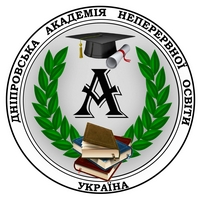LINGUODIDACTIC PRINCIPLES OF DEVELOPING PROFESSIONAL COMPETENCE FOR SIMULTANEOUS INTERPRETATION TEACHERS
Abstract
This article identifies and describes the language teaching principles for the formation of professional competence in simultaneous interpretation teachers. An analysis of domestic and foreign theoretical and practical research reveals that the problem of developing professional competence for simultaneous interpretation teachers, despite its undeniable significance, is still in the early stages of study. In the scientific, pedagogical, and translation discourses, the search for effective solutions has only just begun. Determining the linguodidactic principles of preparing translation teachers in general and forming their professional competence provides the basis for a comprehensive study of this complex issue. It is established that the professional competence of a translation teacher is an integrative characteristic of personality, which presupposes the formation of a complex of necessary competencies for effective pedagogical and translation activities, including various components of pedagogy and translation, and pedagogical communication within the framework of intercultural communication. The professional competence of a simultaneous interpreter is a complex formation that includes both general translation competencies, reflecting the main functions of translation activities, and specific competencies necessary for oral interpretation, including the simultaneous one (as readiness and ability to perceive and understand the oral speech of communicators from different cultures, to transmit it by the communication situation, genre, style, and register; ability to immerse oneself in situations of interlingual and intercultural interaction; ability to activate necessary competencies for translation and teaching activities; readiness for enriching communicative experience while mobilizing already developed skills and abilities; capacity for reflection and self-reflection). Linguodidactic principles of developing professional competence for simultaneous interpretation teachers are defined, taking into account the interdisciplinary nature of this process, namely: pedagogical, translation studies, linguistic, and psychological principles, without which it is impossible to organize the training process for future specialists qualitatively.
References
2. Башманівський О., Вигівський В., Мокотун С. Використання сучасних інформаційних технологій у процесі навчання перекладу. Українська полоністика. 2020. № 17. С. 86–93. DOI: https://doi.org/10.35433/2220-4555.17.2020.ped-1.
3. Бідюк Н. М. Особливості формування перекладацької компетентності майбутніх учителів іноземної мови та літератури. Слобожанський науковий вісник. Серія Філологія. 2023. № 1. С. 36–42. DOI: https://doi.org/10.32782/philspu/2023.1.7.
4. Білик О., Савка І., Кушпіт У. Інтегративний підхід до структурування методів навчання у професійній діяльності перекладачів. Modern Information Technologies and Innovation Methodologies of Education in Professional Training Methodology Theory Experience Problems. 2021. С. 91–98. DOI: https://doi.org/10.31652/2412-1142-2021-59-91-98 .
5. Вербицька Я. Ю. Ефективні підходи до підвищення рівня компетентності перекладача та якості перекладу. Матеріали Всеукраїнської науково-практичної конференції «Сучасна філологія: теорія та практика». Київ: Нац. акад. СБУ, 2022. С. 316–317.
6. Горда В. Навчання перекладу у соціокультурній площині. Молодий вчений. 2020. № 3 (79). С. 436-440. DOI: https://doi.org/10.32839/2304-5809/2020-3-79-91 .
7. Зінукова Н. В. Усний переклад у зовнішньоекономічній сфері: теорія і методика навчання магістрів-філологів: монографія. Дніпро: Університет імені Альфреда Нобеля, 2017. 424 с.
8. Ільчук Т. В. Сучасна методика навчання усному перекладу. Інноваційна педагогіка: Науковий журнал. 2020. № 20. С. 34–40.
9. Ляшина А. Деякі особливості методики викладання перекладу в полікультурному середовищі. Сучасні дослідження з іноземної філології. 2020. № 18. С. 339–347. DOI: https://doi.org/10.24144/2617-3921.2020.18.339-347.
10. Ольховська А. Проблеми змісту компетентності викладача перекладу. Збірник наукових праць Уманського державного педагогічного університету. 2016. Вип. 2. С. 256–263.
11. Онищенко М. Використання інноваційних технологій у навчанні перекладу: перспективи та виклики. Актуальні питання гуманітарних наук. 2023. Вип. 64. Т. 2. С. 179–186. DOI: https://doi.org/10.24919/2308-4863/64-2-29.
12. Перова С. В. Підготовка викладачів перекладу як педагогічна проблема. Педагогічні науки: збірник наукових праць. 2021. № 95. С. 104–112. DOI: https://doi.org/10.32999/ksu2413-1865/2021-95-15.
13. Писанко М. Л. Навчання синхронного перекладу студентів перекладацьких спеціальностей закладів вищої освіти. Вісник Київського національного лінгвістичного університету. Серія Педагогіка та психологія. 2019. Вип. 31. С. 95–102.
14. Статівка А. О. Мистецтво синхронного перекладу. Науковий вісник Міжнародного гуманітарного університету. Серія: Філологія. 2023. № 59. Т. 3. С. 164–167. DOI: https://doi.org/10.32841/2409-1154.2023.59.3.37.
15. Фабрична Я. Г. Сучасні тенденції у професійній підготовці майбутніх перекладачів. Вісник Університету імені Альфреда Нобеля. Серія «Педагогіка». 2021. № 2 (22). С. 284–290. DOI: 10.32342/2522-4115-2021-2-22-31.
16. Черноватий Л. М. Методика викладання перекладу як спеціальності: підручник для студ. вищих заклад. освіти за спеціальністю «Переклад». Вінниця: Нова Книга, 2013. 376 с. (Серія «UTTA Series»).
17. European Master`s in Translation. 2024–2029. URL: https://commission.europa.eu/resources-partners/european-masters-translation-emt_en (дата звернення: 21.02.2024).
18. Hevorhian K. L., Hvozdiak O. M., Shostak U. V. Methodological foundations for learning a foreign language by future translators. Innovate pedagogy. 2023. Vol. 1. № 57. P. 162–165. DOI: https://doi.org/10.32782/2663-6085/2023/57.1.32.
19. Kurz I. Physiological stress during simultaneous interpreting: A comparison of experts and novices. The Interpreters of Newsletter. 2003. Vol. 12. P. 51–67.
20. Orlando M. Training and educating interpreter and translator trainers as practitioners-researchers-teachers. The Interpreter and Translator Trainer. 17 August 2019. DOI: https://doi.org/10.1080/1750399X.2019.1656407.
21. Seeber K. G. Cognitive load in simultaneous interpreting: Existing theories. New models. Interpreting. 2011. Vol. 13:2. P. 176–204.

 ISSN
ISSN  ISSN
ISSN 

